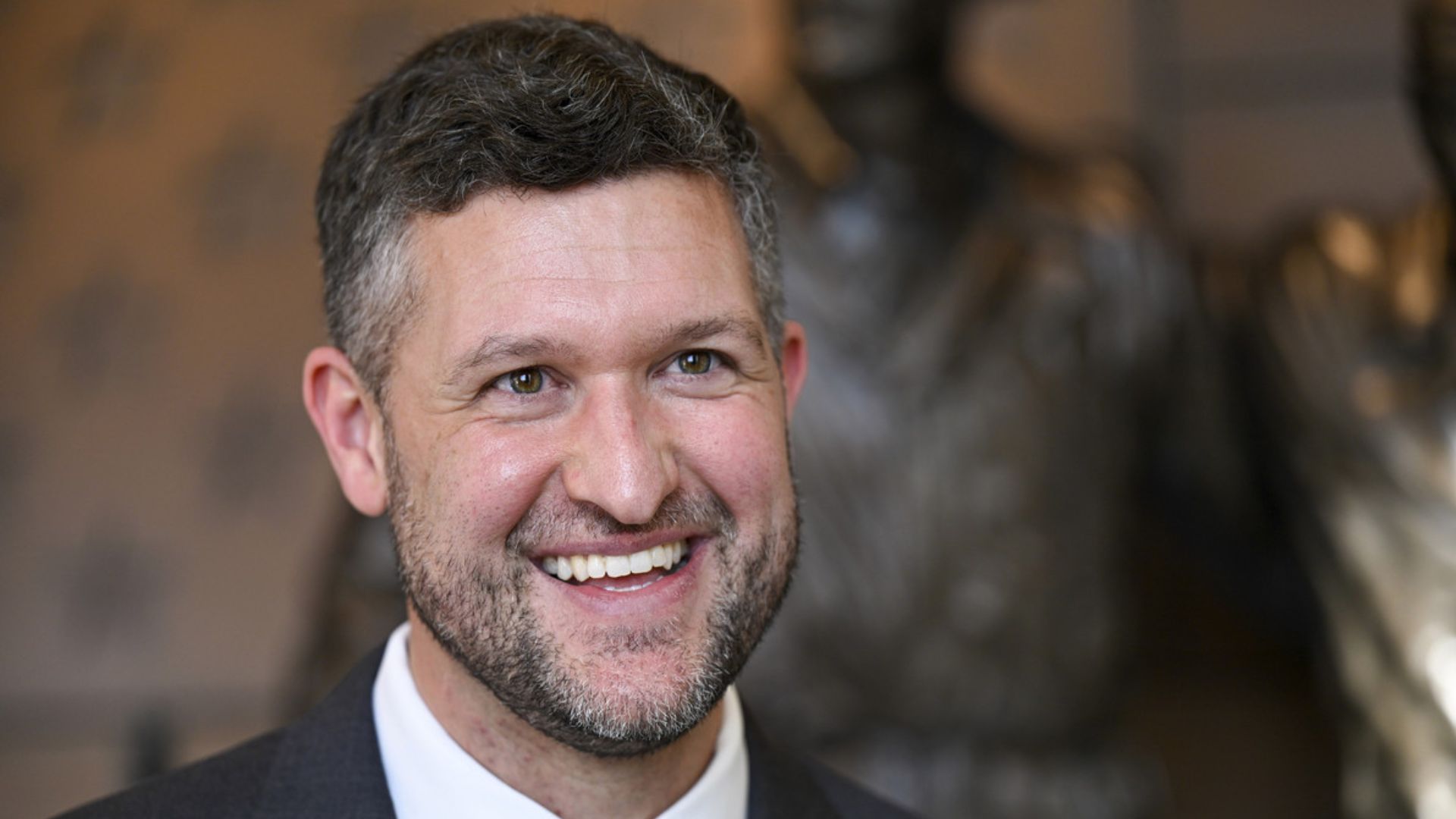Local News
Congressman Pat Ryan brings together Hudson Valley health care leaders and community members to speak out against the harmful impacts of Trump’s health care cuts

Middletown, New York – On a brisk day in the Hudson Valley, Congressman Pat Ryan stood shoulder to shoulder with doctors, hospital executives, community advocates, and local health workers at Garnet Health Medical Center. Their shared purpose was clear: to sound the alarm on health care cuts enacted by the Trump Administration and to underscore the profound toll those cuts are already taking on families across the region.
The event, billed as a “Community Speak Out,” drew a diverse panel of speakers who all described a mounting crisis. They warned that cuts to Medicaid and the Affordable Care Act threaten to unravel the fragile safety net that so many residents in the Hudson Valley depend upon. The stories shared painted a picture of a region bracing for higher costs, reduced services, and devastating community impacts if funding is not restored.
A Community on Edge
Congressman Ryan wasted no time in pointing out the scale of the problem. Medicaid cuts alone, he said, are likely to affect up to one in three residents across the Hudson Valley. More than 75,000 children could lose essential coverage, while countless seniors and working families would be forced to navigate the fallout of skyrocketing costs and diminished access to care.
“These health care cuts are already hitting our community, and tragically the devastation will impact everyone — kicking kids, seniors, and hard-working families off their Essential Plan; driving up health insurance costs for everyone; and forcing closures and cuts at all of our Hudson Valley hospitals and clinics. These are burdens that our community simply cannot afford. And you don’t have to take my word for it,” said Congressman Pat Ryan. “Today I proudly stood with healthcare leaders and workers on the frontline of this battle. They outlined the devastating impacts of Trump’s cuts on hardworking folks – up to 1 in 3 in our community – who will lose their health insurance. People who rely on the ACA will see their premiums skyrocket, with an average Hudson Valley couple facing a $1,000 yearly increase. We’re already seeing the effects on our hospitals, too – the very medical center where we gathered today laid off dozens of people in June and downgraded their trauma center. But we are not powerless. We fought to stop this bill because we knew the devastation it would cause – now our fight is against these harms on the ground, wherever and whenever they arise. I will never stop listening to and elevating your stories – and I’ll never stop fighting for you, for your health, and for our entire community.”
Ryan’s comments connected the dots between federal decisions and local consequences. The setting itself highlighted the urgency: Garnet Health Medical Center had announced in June that federal funding cuts forced the hospital to lay off 42 staff members and downgrade its trauma center.
Hospitals Under Strain
The hospital’s president and CEO, Jonathan Schiller, explained that the problem is not just budgetary but deeply human. He noted that New York hospitals could face as much as $1.7 billion in uncompensated care as more than a million state residents lose their health insurance.
“These cuts will have devastating consequences for patients and hospitals across our state. New York hospitals are expected to cover a projected $1.7 billion in uncompensated care when an estimated 1.2 million New Yorkers become uninsured due to these cuts. This is why we need to continue raising awareness, building support, in the hope we can have all or part of these cuts reversed,” Schiller said.
Dr. Pamela Murphy, Chief Medical Officer at Garnet Health, put the impact into plain terms that hit home for families. “This isn’t just about the impact for hospitals in New York, it’s about the impact it will have on our patients, who are our neighbors, our family, our community. Cuts like this lead to very difficult choices—do I buy groceries or get my prescription filled? Our patients should not have to choose,” she said.
Safety Nets at Risk
Cornerstone Family Healthcare has long served as a lifeline for vulnerable residents. Its president and CEO, David Jolly, warned that Medicaid cuts could dismantle that lifeline just as families need it most.
“The recent Medicaid cuts jeopardize the health and stability of families who already face the steepest barriers to care,” Jolly said. “For more than 50 years, Cornerstone has stood as a safety net for our neighbors, and these cuts threaten to pull that net away at the very moment it is needed most. We are calling on policymakers to protect the critical funding that ensures children, seniors, and working families can continue to access affordable, high-quality healthcare in their own communities. We are especially grateful to Congressman Pat Ryan for his continued advocacy and leadership in defending access to care for the most vulnerable in the Hudson Valley.”
A Blow to Independence
Cuts to Medicaid funding also hit people with disabilities particularly hard. Doug Hovey, CEO of Independent Living, Inc., said the reductions could make it impossible for many to remain in their homes and communities.
“Medicaid is health insurance for people with disabilities, aging adults and those with low income levels, and Medicaid-funded programs and services, including those supported through New York’s waiver programs, make it possible for people with disabilities to live independently in their communities,” Hovey said. “While we stand with many other agencies and providers who will be negatively impacted by HR1’s cuts to New York’s Medicaid funding, I want to highlight the particularly heavy impact these reductions will have on people with disabilities and the community-based providers who support them. Without this critically important health insurance and access to services delivered in the community, individuals risk losing the supports they need to remain at home, engaged, and contributing members of their communities. These cuts will hurt everyone, and we join Representative Ryan in calling on Congress to reverse them. Protecting Medicaid is not only the right thing to do, it also makes sound fiscal sense. Every Medicaid dollar spent on community-based services strengthens local economies and sustains the health and human services systems on which so many depend. The best way to honor that commitment is to ensure these services remain fully funded for all who rely on them.”
Warnings From Community Advocates
Others echoed the message that Medicaid is more than a safety net—it is foundational infrastructure. Michele McKeon, Chief Operating Officer of RECAP, emphasized that the cuts threaten behavioral health programs, preventive care, and the very survival of critical agencies.
“Medicaid is not just a safety net—it is the infrastructure that sustains our social services and healthcare systems,” McKeon said. “Proposed cuts would destabilize providers, reduce access to critical behavioral health and preventive care, and ultimately would be devastating to critical care agencies, like RECAP. Protecting Medicaid ensures fiscal responsibility and healthier communities. Every day at RECAP, we see how Medicaid allows parents to get well, children to thrive, and seniors to live with dignity. If these cuts move forward, it’s not numbers on a page that suffer—it’s real families in our neighborhoods. We cannot afford to turn our backs on them. Medicaid is the backbone of care for thousands of families in Orange County.”
Assemblymember Jonathan Jacobson (D-104) added that the Trump Administration’s approach is not just harmful but fundamentally unjust, trading health coverage for tax breaks to the wealthy.
“The Trump Administration is on the attack against health care for everyday Americans. In the big ugly bill, cuts were made to Medicaid and subsidies under the Affordable Care Act. These cuts will force hospitals to close or curtail services due to losing over $8 billion in direct aid and another $3 billion in uncompensated treatment. There are 1.5 million New Yorkers, including children, now at risk of losing their health insurance. Three million are at risk of higher costs due to the reduction in Affordable Care Act subsidies. These cuts were made to give huge tax cuts to the ultra-rich. Restoration of these cuts must be a priority in the next Federal budget,” Jacobson said.
A Fight Far From Over
For Congressman Ryan, the issue is not only policy but principle. From the start, he was an outspoken critic of the Trump Administration’s domestic spending agenda, calling it a “Big, Ugly Betrayal” of American families. He argued that the real impact of those decisions is being felt now, as hospitals cut staff, trauma centers close, and insurance costs soar.
Trump’s plan, Ryan said, strips health care coverage from more than 17 million Americans and burdens millions more with higher premiums. The cuts, he added, are driving hospitals across the nation into financial crises, forcing mass layoffs and leaving communities without the care they need.
Despite the grim outlook, Ryan and the health leaders who joined him struck a tone of defiance. They pledged to keep fighting, to elevate the voices of patients and providers, and to pressure lawmakers in Washington to restore funding before the damage becomes irreversible.
The Stakes for the Hudson Valley
The consequences in the Hudson Valley are already evident. Families are staring at premium increases of nearly $1,000 a year, and hospitals like Garnet Health are scaling back services to stay afloat. Advocates say that without urgent action, more cuts, layoffs, and closures are inevitable.
Yet amid the warnings, there was also a sense of solidarity. From hospital CEOs to grassroots advocates, each speaker made it clear that they see the fight for health care funding as a shared struggle for the dignity and well-being of their neighbors.
As the event concluded, the message was unmistakable: the Hudson Valley is not willing to accept the erosion of health care without a fight. Leaders vowed to continue raising awareness, mobilizing support, and holding policymakers accountable until essential coverage and funding are secured.
For Ryan, the promise was simple but resolute. He pledged to continue standing with health workers, patients, and families. And he made it clear that the fight over health care is far more than a policy debate—it is about protecting lives, sustaining communities, and upholding a basic promise that no family should be left without the care they need.

-

 Local News12 months ago
Local News12 months agoNew ALDI store close to Rochester to begin construction in late 2025 or early 2026
-

 Local News11 months ago
Local News11 months agoRochester Lilac Festival announces exciting 127th edition headliners
-

 Local News9 months ago
Local News9 months agoCounty Executive Adam Bello and members of the county legislature celebrate exceptional young leaders and advocates at the 2025 Monroe County Youth Awards
-

 Local News9 months ago
Local News9 months agoThe 2025 Public Market Food Truck Rodeo series will begin this Wednesday with live music by the Royal Bromleys